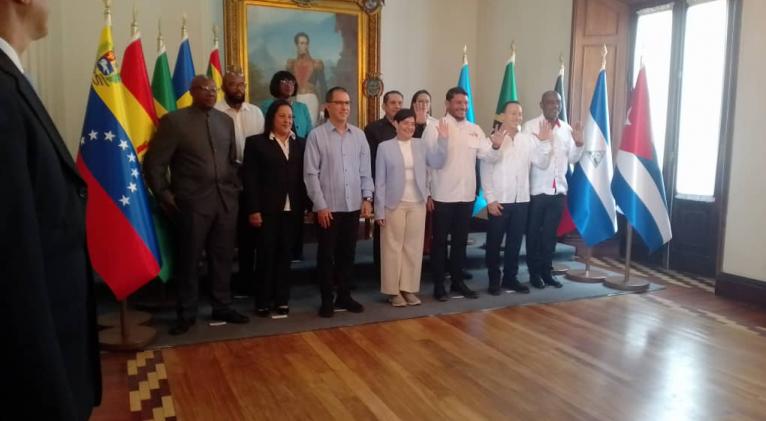ALBA-TCP Meeting Approves Eight Science and Technology Agreements
especiales

The Ministers and High-Level Authorities of the ALBA-TCP Scientific and Technological Council agreed today in Caracas eight agreements that benefit integration in these areas, benefiting the peoples and their member states.
At the closing of the meeting at the Casa Amarilla of the Ministry of Foreign Affairs, the Executive Secretary of the Bolivarian Alliance for the Peoples of Our America (ALBA-TCP), Jorge Arreaza, read out the agreements reached at this first meeting, resulting from the bloc’s 24th Summit last December.
As part of the commitments, the ALBA Science, Technology, and Artificial Intelligence (AI) Center will be inaugurated in the Bolivarian Republic in the second half of this year. It will serve “to promote scientific, technological, and socio-productive advancement” in its member countries.
Likewise, they will carry out research activities in all aspects of AI, aimed at offering “services and solutions in the productive, social, and economic spheres across a broad range of sectors,” in the agriculture, health, education, energy, oil, environment, and culture sectors.
They will also facilitate and implement educational programs and talent training to build comprehensive capabilities at different levels of education, as well as for already trained personnel, which includes “workshops and courses on AI, Data Science, and machine and deep learning.”
The Ministers and High Authorities of ALBA-TCP agreed to promote innovation and the creation of applied solutions based on Data Science and AI, aimed at “improving the efficiency and optimization of processes and the quality of service in medicine and public services, as well as food sovereignty.”
They will also develop a joint computing infrastructure for AI, offering “a proprietary and independent technological basis for the experimentation, evaluation, and deployment of machine and deep learning models.”
In addition to foundational models and large language models, and a human talent platform.
Regarding training in scientific and technological matters, they proposed facilitating a scholarship program, to which Venezuela committed to allocating fifty scholarships to the University of Sciences, in the areas of Microbiology, Biotechnology, Biochemistry, Ecology, Immunology, Anthropology, and others.
In this regard, they proposed promoting “cooperation in the training and development of human talent” through technical and specialized recruitment, scholarships, doctoral and master’s programs.
In this regard, Venezuela offered the Alliance countries the production of diagnostic kits for tropical diseases such as dengue and HIV, in accordance with the list of needs processed by member countries through the Executive Secretariat.
Finally, they agreed to promote the strengthening of production in the region through cooperation in biotechnology applied to agriculture and Earth observation, through technical cooperation from the Bolivarian Agency for Space Activities.














Add new comment